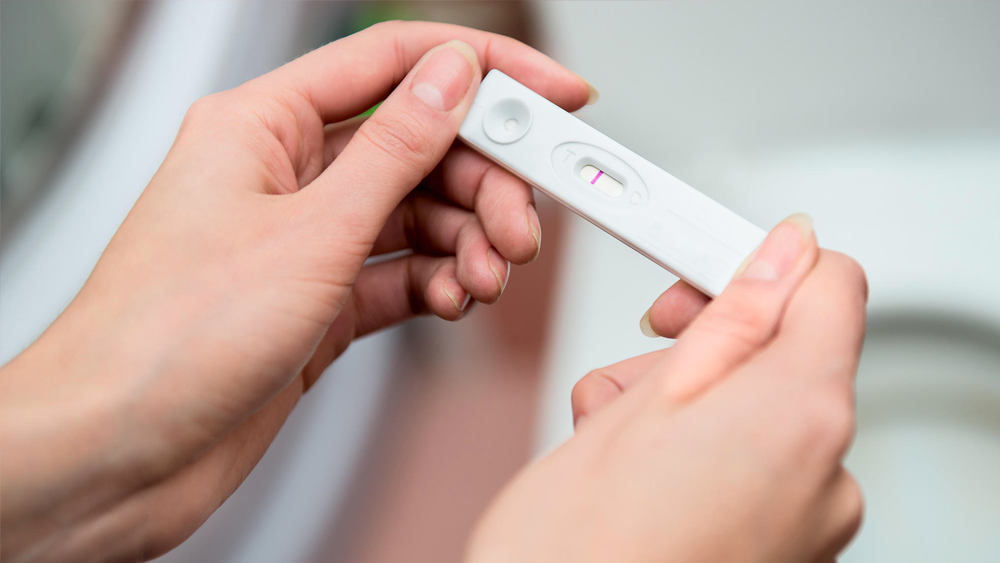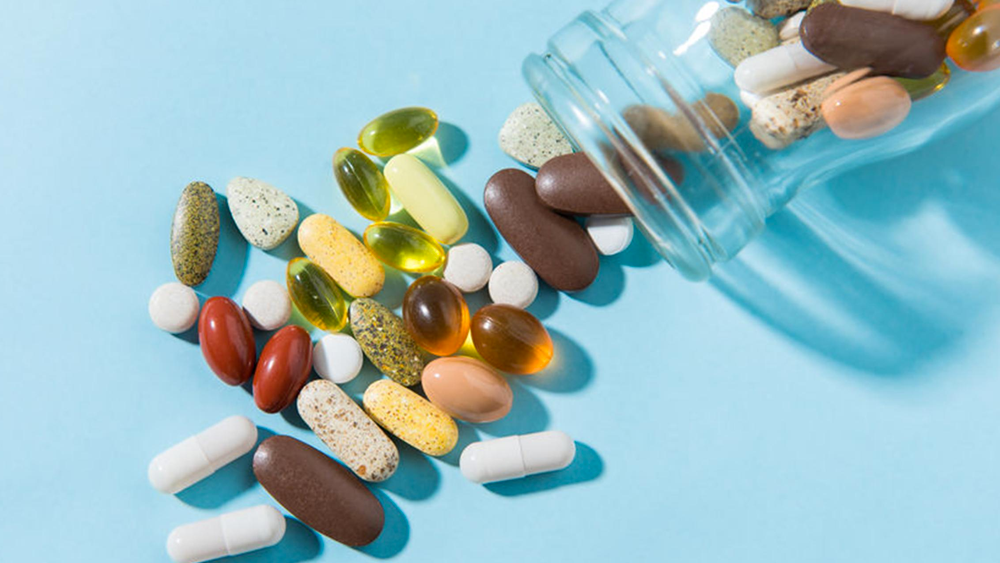Fertility improvement by means of natural compounds.

If you are thinking about having a baby and want to maximise your chances of conception, or falling pregnant is taking longer than you’d hoped, this guide may be helpful.
Basic knowledge.
The term “fertility” increasingly appears at the hearing and drew the attention that requires us to understand its meaning. Fertility (from the Latin «fertilis») – is the ability of mature organism to create viable offspring. So, what are the today’s fertility aspects, especially for women?
Women’s fertility – the ability to become pregnant. From birth, the female body gets about 300 thousand of possible female sex cells – follicles – fertile “strategic” reserve. Moreoften, people are actively building a career and consciously pushing the first pregnancy after 30 years old, when already oocytes got «life-influence». With age and the number of ovulatory cycles (cycles in which follicle grow to oocyte-complete sex cell of woman that can be fertilized), as well as by the influence of adverse factors, the number of eggs decreases rapidly, which may lead to reproductive health problems.
As already mentioned, at the birth of girls the ovaries contain about 300,000 potential eggs – oocytes. Although there are exceptions: it can vary from 35 thousands of cells in some baby girls, up to 2 million for others, genetically. In any case, their number is reduced much faster than previously thought. So, at 30 years a woman has on average about 12% of the original stock of follicles, and after 40 – only 3%. Thus, many women are mistaken in thinking that they remain fertile until they menstruation occurs.
On average, the ability to conceive a girl (in European countries) comes at 11-13 years- in adolescence, when the first menstruation occurs (even if ovulation is not yet scheduled in this period). And it ends by around 58-62 years (middle age, when the statistically comes menopause.
In general, the reproductive potential of each woman depends on a combination of genetic characteristics, lifestyle and habits, as well as the health status at the time of conception.

Spheres of influence
As mentioned above, female fertility depends on a complex of factors, many of which, but not all, can be positively influenced.
- Absence of bad habits. This factor comes on the top of the list (or you can say “is the most important”). Because, for example, smoking (both passive and active), as the most common form of addiction, reduces both male and female fertility. Smokers male sperm activity appears 17% lower than non-smokers. Also, recorded cases of infertility and miscarriage, are often among women who smoke.
- Physical activity. It improves blood circulation in the body, promotes tissue oxygenation and prevents stagnation in the pelvic organs. It also enables adequate blood flow to the sexual glands, which in turn, contributes to their active cyclic function.
- Physiological diet. It has a direct impact on health. The lack of essential trace elements and vitamins in the body has a negative impact on ovulation and spermatogenesis processes. For example, vitamins C and E are affecting both female and male fertility. For women, they are “helpers” for hormonal synthesis while for men they significantly increase sperm motility.
- Stress. Despite the fact that the dependence of stress on fertility is not so actively discussed as the negative effects of smoking and alcohol are, we should not forget that it exists. Stress is a factor for violations of adaptation in general, which affects the reproductive system. More and more studies show that stress reduction has a positive effect on the ability of couples to conceive a child.
- Sleep. Sleep deficiency adversely affects the fertility in both sexes. A woman with a constant lack of sleep, may have menstrual cycle disturbances which have a negative impact on the reproductive function. The issue are hormones – cortisol level change, leptin, insulin, dopamine, that are responsible not only for stress, pleasure, appetite and body weight, but also affect female fertility.
Not all couples trying for a baby are will fall pregnant straight away. In fact between 10-20% of women who would like to become pregnant won’t get pregnant within the first year of trying. Whilst this can be due to underlying problems, it can often simply be a combination of not knowing the best time to try paired with an unbalanced lifestyle. Nutrition and physical health play a significant role in female fertility and, as such, there are a number of vitamins that can give your chances a significant boost.
How Nutrients Increase your Chances of Getting Pregnant
Eating certain foods and avoiding others has been medically proven to improve the ovulatory function of a woman and increase her chances of becoming pregnant. Of course, it’s not all about diet. There are other factors that can lower your chances of getting pregnant. Being overweight or underweight can lead to menstruation disorders, which can cause a woman to stop ovulating. Below are some things to be aware of when thinking about diet and nutritional or vitamin supplements as you try for a baby.

— What are the best foods to eat when trying to conceive?
As studies have found that high levels of insulin appear to inhibit ovulation, it is wise to avoid eating refined carbohydrates, such as white bread, white rice and cakes, which our bodies digest quickly and turn into blood sugar. Instead, stick to more complex ‘good’ carbs, which contain plenty of fibre, such as wholegrains and beans. These carbs are digested more slowly, having a more stabilising effect on insulin and blood sugar.
When trying for a baby, it is therefore important to eat a healthy, well-balanced diet that has plenty of good quality protein, fruit and vegetables and is low in saturated fats and high in fibre. Lean organic poultry, quinoa, beans, seeds, nuts and tofu provide a healthy source of protein for women trying to conceive.
— Can you get all the vitamins you need to get pregnant in your diet?
Even if you are consuming a healthy, nutritional, well-balanced diet, you still may want to take vitamins or fertility supplements to fill in any nutritional gaps in your diet that may help you conceive and, if you do become pregnant, are important for healthy foetal development.
— What recognised standards should I look for on fertility supplements?
If you do decide to take fertility vitamins and supplements when trying for a baby, it is important to only take ones with recognised standards, as such supplements can vary significantly in quality. Vitamins that come under the Medicines and Healthcare Products Regulatory Authority (MHRA) or the Traditional Herbal Registration (THR) are among the best to take, as they are regulated and contain what they say on the label.

The Best Vitamins for Female Fertility
As well as a healthy balanced diet and an active and healthy lifestyle, there are a number of vitamins that have been identified as really aiding female fertility. Whilst they are certainly not essential for conception, if taken at the appropriate dose, they can increase your chances.
Folic Acid
Folic acid is an important vitamin, not only for women trying to conceive, but during the first three months of pregnancy. Folic acid can help increase your chances of becoming pregnant and is an important nutrient in helping the baby’s spine develop the way it should. It is recommended that women trying to conceive take at least 400 micrograms of folic acid daily and continue taking this supplement for the first three months of the pregnancy.
Coenzyme Q10
is a natural antioxidant, which is found in many foods and available as a supplement. Our bodies make CoQ10 and our cells use it to produce the energy the body needs for cell growth and maintenance. Studies have found that CoQ10 supplements in older women trying to conceive can improve their chances of pregnancy success.
Omega 3 Fatty Acid
By regulating the hormones, promoting ovulation and increasing cervical mucus, as well as the flow of blood to the reproductive organs (thereby improving the overall quality of the uterus). As the body cannot make Omega 3 Fatty Acid, it is particularly important we gain this nutrient through our diet or by taking supplements. Fish oil and flax oil are rich in Omega 3. Women trying to conceive or who are already pregnant are advised to take at least 650mg of fatty acid each day. If you do become pregnant, switch to a pregnancy omega 3 formulation which contains higher amounts of DHA for foetal brain health.
Iron
It is recommended that women trying for a baby and during pregnancy take 27 mg of iron per day. It is recommended you seek medical advice before taking an iron supplement as some people store iron abnormally which can lead to toxicity.
Calcium
plays a vital role in the development of a baby’s bones, blood vessels and heart. Women trying for a baby should ensure they are getting the recommended 1000mg of calcium a day in case they become pregnant.
Vitamin D
helps an unborn baby develop normally. It is therefore important to have sufficient stores of vitamin D when trying for a baby. A vitamin containing 10 micrograms of vitamin D is advised for women who are trying to get pregnant.
Vitamin B6
Research shows that giving women vitamin B6 can increase their chances of becoming pregnant. The recommended daily allowance of vitamin B6 is 10mg. If you’re not getting sufficient B6 in your diet, you may want to think about taking a supplement.
Vitamin C
helps regulate the menstruation cycle and normal ovulation. As vitamin C is not naturally stored in the body, it is recommended you take a daily dose of 500mg twice a day.
Vitamin E
In women, vitamin E can increase cervical mucus, making it easier for sperm to stay alive for longer. Taking a vitamin E supplement could increase a couple’s chances of conception.
Selenium
Research shows that it can promote healthy follicles in the ovaries, which develop and release the eggs. This antioxidant can also protect against birth defects and miscarriages caused by DNA damage. Women trying to conceive should not exceed more than 400mg of selenium a day.
Zinc
Zinc also supports fertility by regulating normal hormone function, cell division and ovulation. As our bodies don’t store zinc so it is important women wanting to become pregnant receive the recommended daily allowance of 8mg.
Planning of pregnancy is always a task for two – for the couple, so when planning a pregnancy, the couple can get professional advice from gynecologist or family doctor.
In conclusion, one of the the best solutions for maintaining a long fertility is a rational attitude to health from the very beginning of life. Be well and teach your kids to do it. The creation of healthy traditions in the family and their transfer by inheritance create a strong and healthy society.